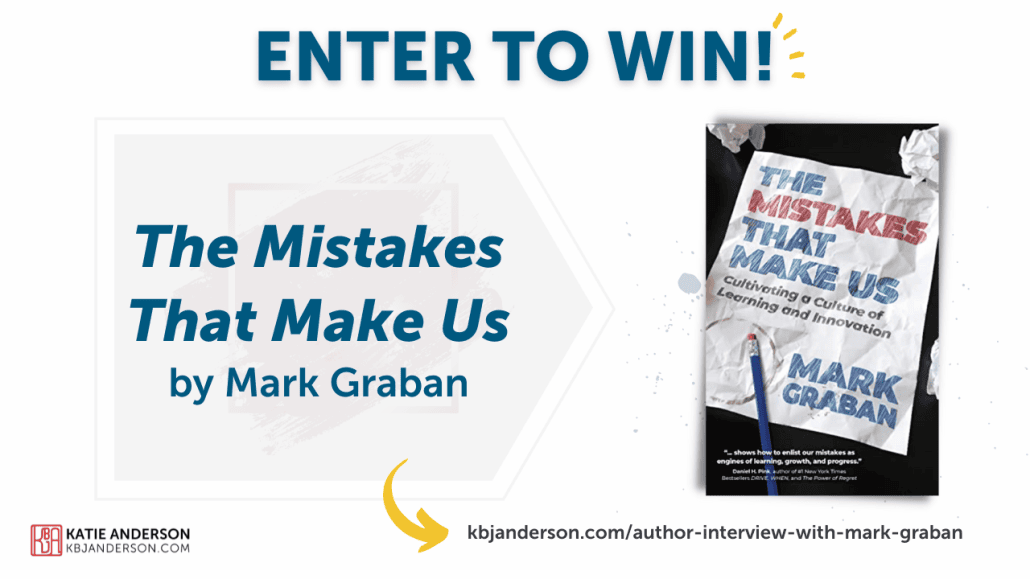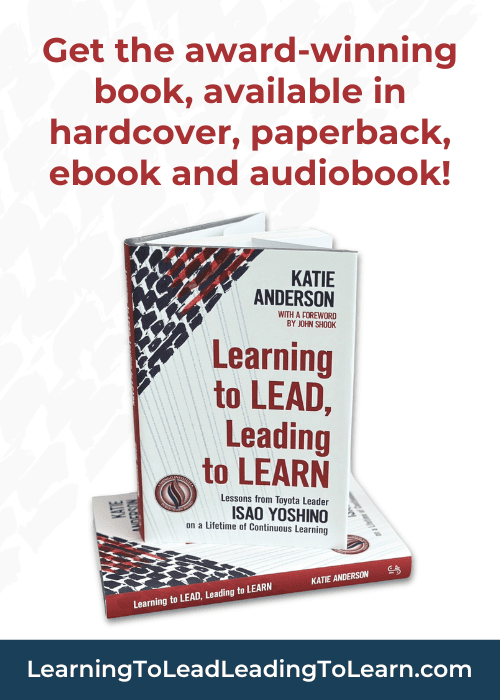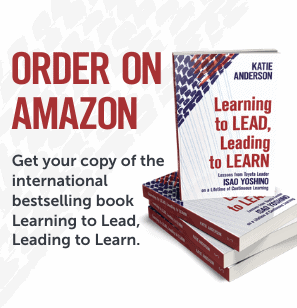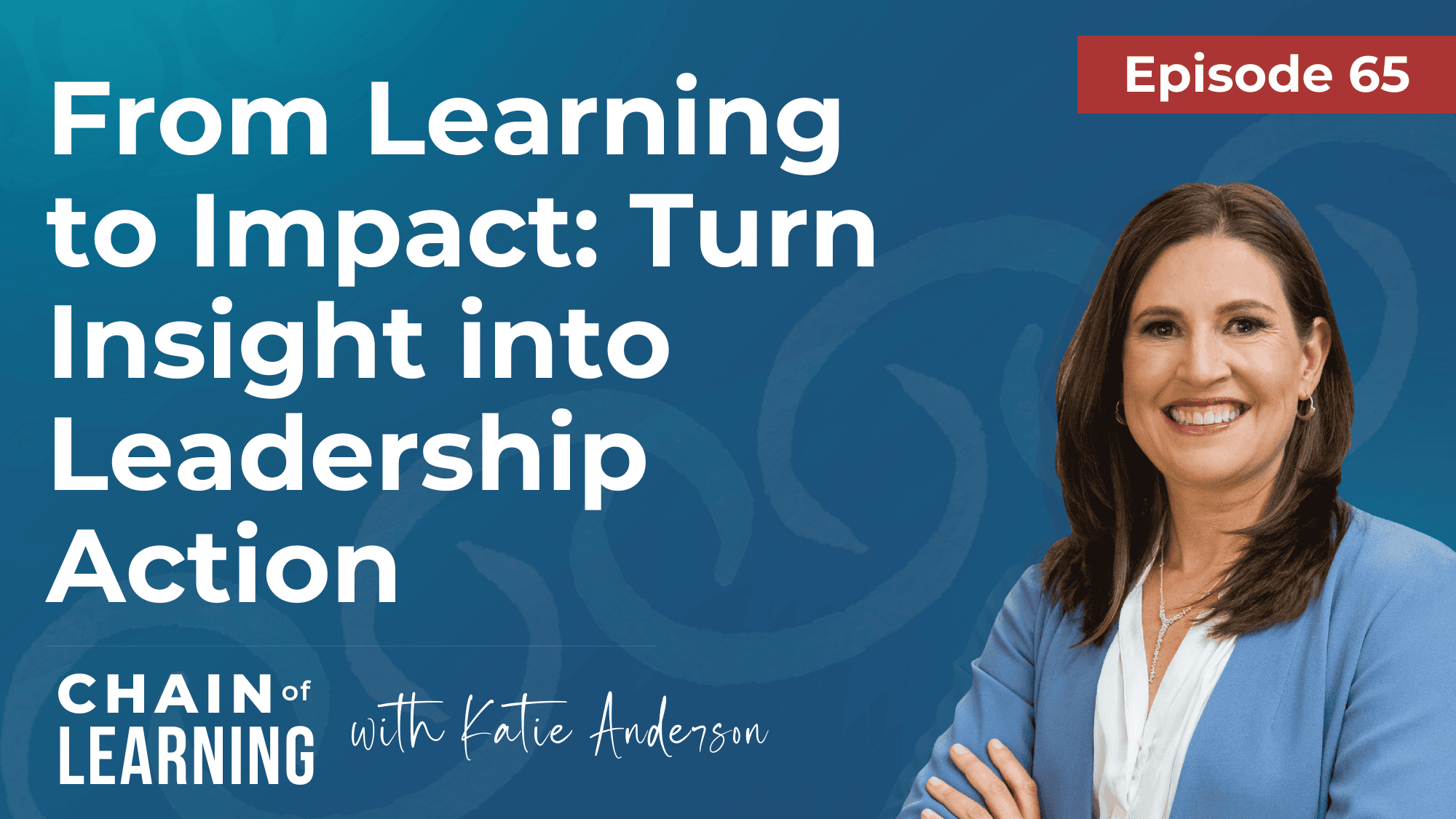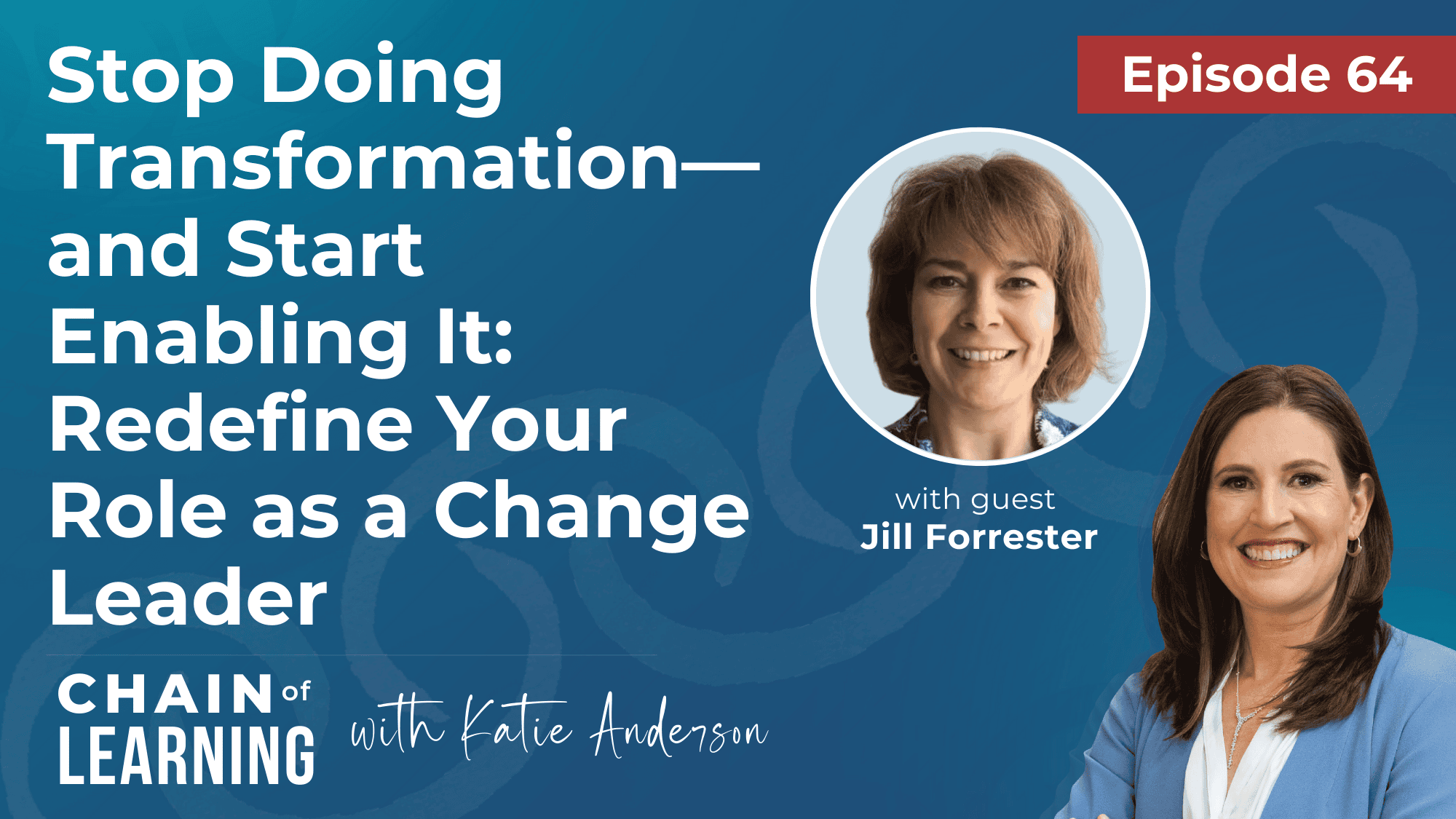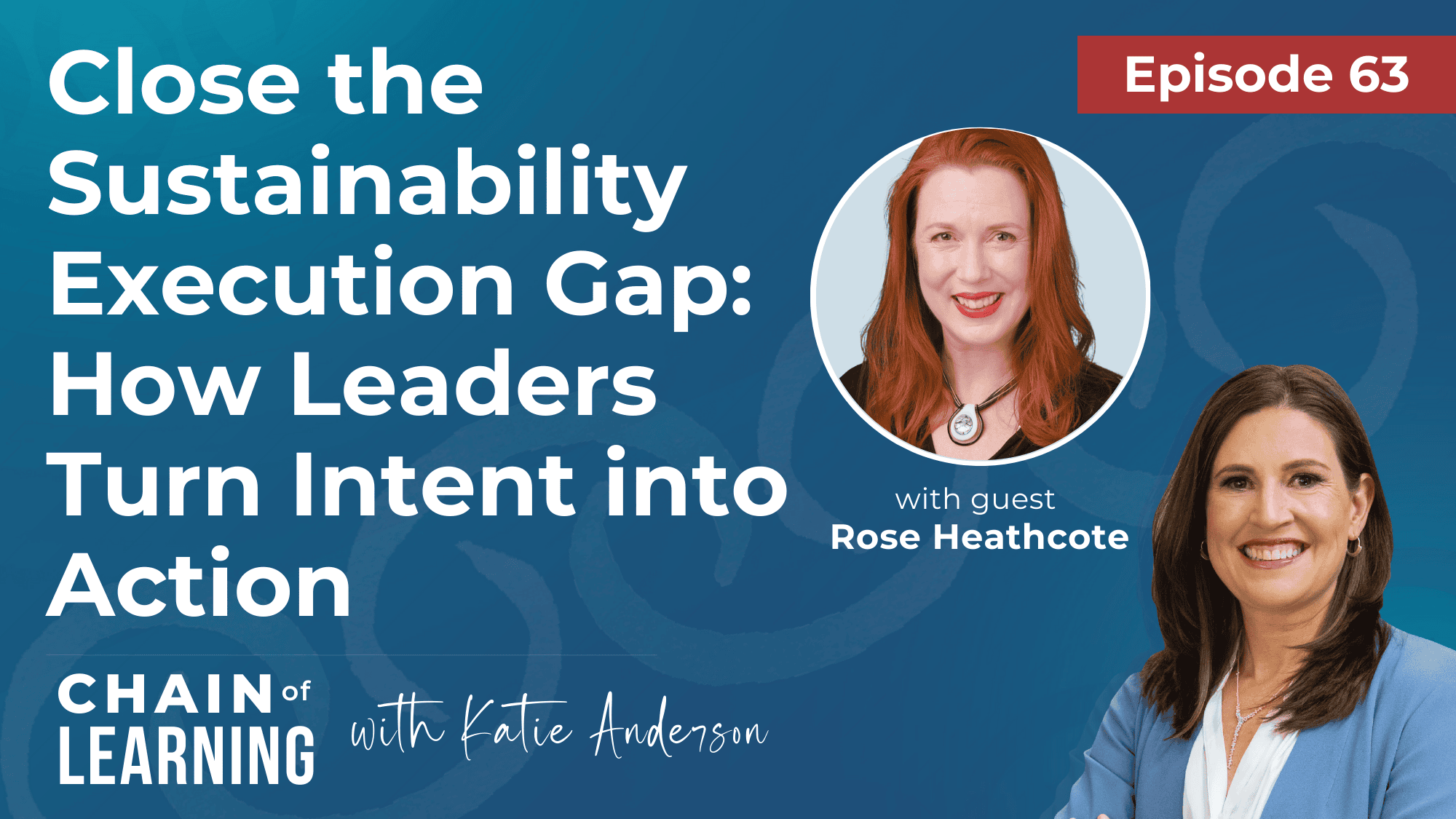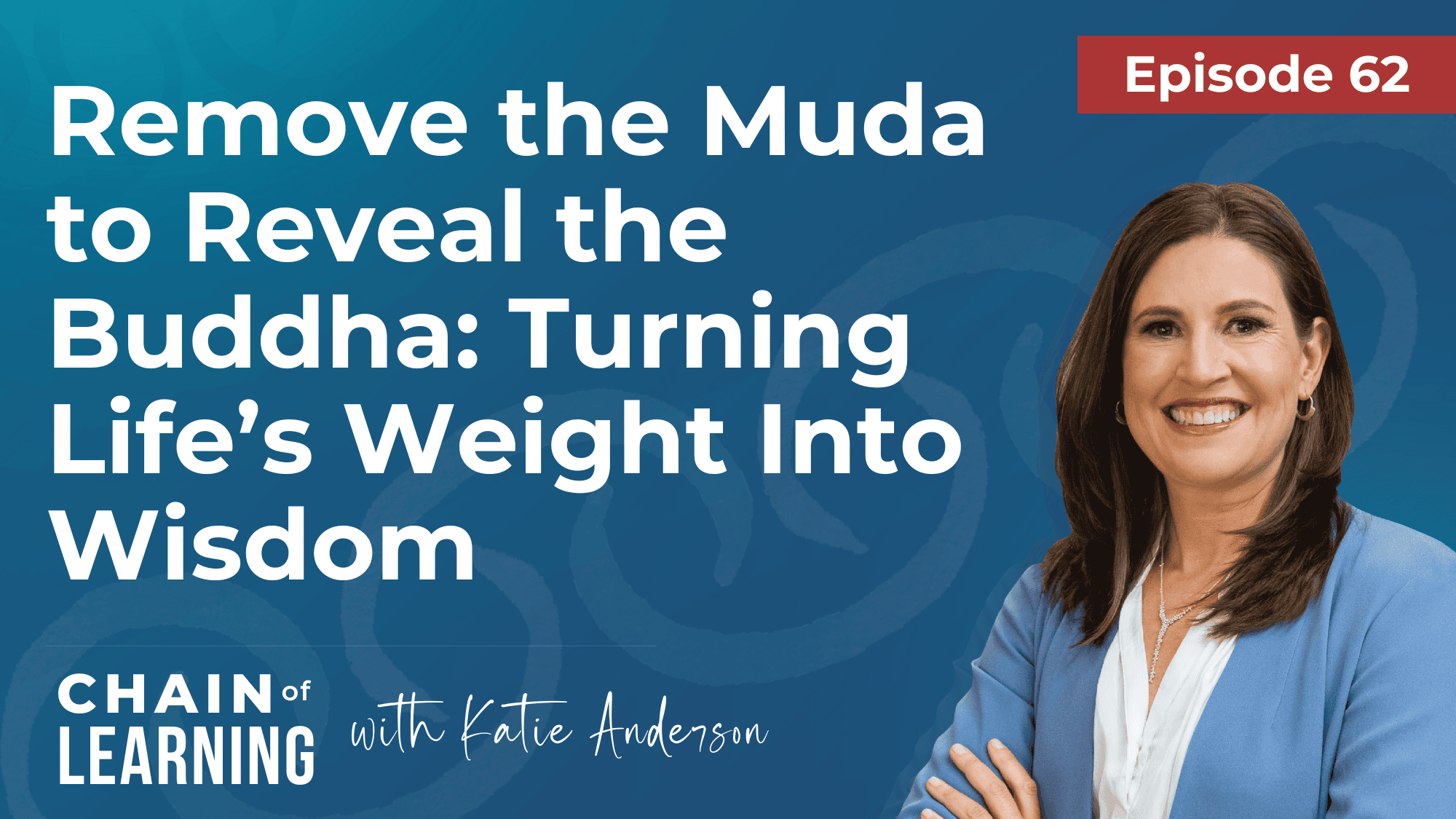What drives continuous improvement? What are the benefits of having a culture of learning from mistakes? What role does kindness play in leadership?
I am so thrilled to welcome back Mark Graban to my author interview series and to celebrate the release of his new book: The Mistakes That Make Us: Cultivating a Culture of Learning and Innovation.
Mark is a longtime friend and colleague (about a decade and a half at the time of this interview) and we’ve collaborated on writing books, hosting each other on our podcasts, making (and learning from) mistakes, and learning how to be better leaders and humans.
It’s particularly exciting to discuss this book with Mark because he was so instrumental in helping me when I was working on my book, Learning to Lead, Leading to Learn, and figuring out the process of writing, publishing, marketing and the ongoing mistakes that you make when you are writing and releasing a book (or audiobook – which you can learn about from one of my guest appearances on his podcast My Favorite Mistake).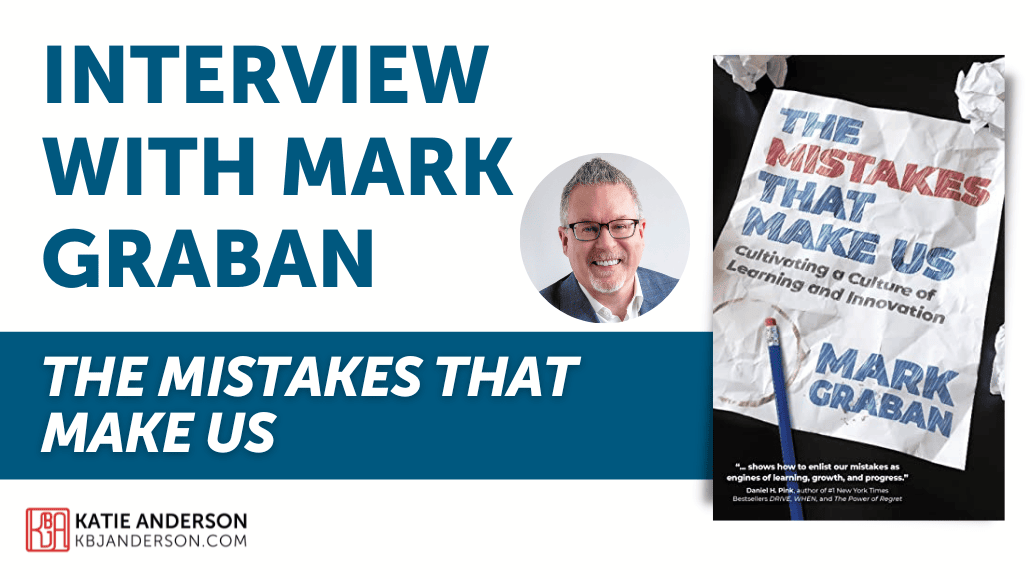
Enter the Giveaway!
Enter to win your own copy of The Mistakes That Make Us! Mark has generously agreed to give signed copies of his new book to three lucky winners anywhere in the United States.
Be sure to enter the giveaway by clicking here – your chance to win ends on June 28th at 11:45pm Pacific Time.
You can also purchase your own copy directly – go to MistakesBook.com for links to all retailers!
This giveaway ended on June 28th at 11:45pm Pacific.
About Mark Graban
Mark Graban is an author, speaker, consultant, podcaster, and entrepreneur. He’s an influencer in the space of lean leadership, quality improvement, and now learning from mistakes!
Learn more about his podcasts, his work, and his many books: https://www.markgraban.com/
I’ve had the honor to collaborate with Mark in many ways and be the guest on both of his podcasts multiple times. Here are some of our recent episodes together:
- Lean Blog Podcast Episode #464 – Katie Anderson Discusses Larry Culp’s AME Keynote And Their Fireside Chat
- My Favorite Mistakes Podcast Episode #128 – Author Katie Anderson’s Audiobook Mistakes And What She Learned In The Process
- My Favorite Mistakes Podcast Episode #30 – Isao Yoshino & Katie Anderson On Mistakes, Leadership, Learning, And Culture
- Lean Blog Podcast Episode #302 – Katie Anderson on Japan: Standard Work, Customers, and Healthcare
I’ve also highlighted Mark’s earlier book Measures of Success in past author interviews (before we went to a podcast / video format) and as one of my top books on problem-solving and coaching for improvement. Check it out:
- Author Interview with Mark Graban: Measures of Success
- Top Book Recommendation Series: 10 Top Books on Problem-Solving and Coaching for Improvement – (Listing Measures of Success by Mark Graban)

Interview with Mark Graban and Katie Anderson
Dive into my discussion with Mark Graban about his book The Mistakes That Make Us.
We discuss various topics including:
- driving continuous improvement in organizations
- the benefits of having a culture of learning from mistakes
- The impact of a culture where learning from mistakes is not embraced (I share a personal story of experiencing a medical error)
- the role of kindness in leadership
- plus much more!
In addition to reading some of the highlights from our conversation, you can access the full interview by watching the video via YouTube or listening to the audio via downloading the podcast on Apple Podcasts or Spotify.
We have timestamped the questions and lightly edited Mark’s answers below for your reading convenience.

1. How did the process of getting excited about creating a new podcast get started, and then how did that lead to the creation of the book The Mistakes That Make Us? (4:00)
So, first off, going back to about 2015, another book project that I didn’t mention was a collaboration called Practicing Lean. Fifteen other authors writing a chapter reflecting on early days on our own lean journey, a mistake we made then that we might not make now, sharing those and trying to remind ourselves, including me, to not forget what that was like when people are new to this – be kind, don’t be too hard on people when they make a mistake, especially if they don’t have the benefit of a coach helping them. So it had been in the back of my mind, this idea of acknowledging, learning from, and sharing mistakes.
In the summer of 2020 – peak pandemic – I wasn’t traveling for work and I took on new podcasts (not knowing at the time that was going to lead to a book) but I had a PR person reach out saying, “Hey – Kevin Harrington, one of the hosts on Shark Tank, has a new book about mentoring, and he and his co-author are available for an interview.” I thought that sounded great, but I couldn’t figure out how to make it really a fit with the Lean podcast but I decided I had to find a way to say yes. So we kind of bounced some ideas back and forth, and Kevin Harrington and his co-author, Mark Timm, were actually on board with the idea of sharing a mistake. And so that led to creating the My Favorite Mistake podcast… Those first two were great but I didn’t know how many other guests would be willing to do it.
… And now I’ve just released episode 215.
One of my first guests asked me, “Are you doing this podcast because you’re writing a book about mistakes?” And so that it planted a seed and it took about another year to really start thinking about it. But, there’s such a collection of rich stories and themes and patterns, and I thought, “Okay, yeah, I think this will be my next book.”
2. What are one or two key themes that emerged as you created the book? (17:45)
There’s a lot of interesting patterns. One is the power of hindsight or time that’s passed since a mistake is made does heal the wound a little bit. So when people talk about a favorite mistake, it may or may not be their ‘biggest mistake,’ I’m not asking people “What’s your worst mistake? What’s your biggest mistake?” A favorite mistake is usually one that is big enough that it sticks with you and hopefully leads to some sort of growth and learning. Usually people on the show are talking about a mistake that happened years ago or even decades ago, which I think speaks to the power of how a mistake can stick with us…
But one other thing I’ve learned though is to leave some space. There’s this balance where, I think we’ve all been taught problem solving of like, you want to do the problem solving when it’s fresh, as soon as you can, while you’re still at the gemba, people’s memories aren’t fading. That said, I’ve learned through some experiences that sometimes you do need to give someone a little space when they feel bad to let them process that. There’s this balance of not waiting a really long time, but sometimes you need to ask before we start asking five why’s. You almost need to ask, how are you doing?
3. How do we acknowledge that setbacks, challenges, and mistakes are inherent to us as humans, and it’s about how do we get up and learn from it and continue on forward? (24:21)
I think it’s part of the Toyota notion of respect for humanity or respect for people. And that obligation of realizing we’re human, we are going to make mistakes. And for lots of reasons, or infallibility, it’s made worse by fatigue or distraction or other issues. Sometimes I hear in healthcare people are realizing that being punitive is really counterproductive or unfair or unjust.
At the same time, we can’t just throw our hands up and be like, “Well, this went wrong. There was a mistake. We’re not going to be punitive.” We recognize it’s human error. And then I think this is a mistake. People say, “Well, what can we do?” They throw their hands up and say, “It’s human error, what can we do?” And I’m like, that’s exactly the question. We need to answer: “What can we do to improve systems and processes and communication and training or other things?”
4. If you were going on your show today. What would you choose as your favorite mistake? (29:00)
Well, so there’s two different stories. I’ll tell the quick versions because I think they illustrate different types of positive things that maybe come out of a mistake. And neither was the biggest but meaningful in different ways.
When I took a job at Dell Computer coming out of grad school in 1999, it took me about a year to think like, “Hmm, that was a mistake.” I started thinking about other things I wanted to do, and I left within the second year and joined a startup company. So there were positives that came out of that job at Dell. I was able to do some interesting work and have two patents because of that work. And met a lot of people, including my wife Amy. So I can’t regret that “career mistake” because it did lead to a positive outcome 21 and a half years later.
So there’s that and then the story from let’s say practicing lean of being early in some of my manufacturing work and not fully engaging people in improvement of being the person doing, coming up with a solution and implementing it and then trying to get people to adopt it. That engagement was happening way too late. Now, the one story that I tell, like when I was at Honeywell and going through basically a lean black belt certification the culture, there was not one that really engaged frontline workers in improvement. They didn’t really create the time for people to be involved in improvement. So there were some systemic factors, but that said I can own my own actions and in hindsight, I could have done more to engage the frontline workers, and it would’ve been much more likely that the little visual production kanban system with the changeover triggers and everything, would’ve been really embraced and would’ve been sustained.
So I think from a career mistake perspective, that inspired me to say, “Well, okay, I don’t want to make that mistake again, and I don’t want to be in a position where I’m not allowed to engage the frontline people doing the work.” So those were a couple of my key takeaways from that favorite mistake.
5. What’s one mistake you’ve learned from this book that you’re willing to share in the process of writing or publishing? (32:00)
One was going in and setting up the Kindle version pre-order on Amazon, and setting the date. I set that for June 27th, thinking that there would be plenty of like three weeks buffer time. I wanted the print book and the Kindle book to ideally launch at about the same day. I see Amazon allows you to pull the date forward. They really don’t want you to be late and to push it back. So the mistake was not setting more buffer time on the release date for the Kindle version.
So now, no matter what, even if the print book’s not ready for another week, I have to release the Kindle book on June 27th. It’s not a huge problem, but in hindsight, it’s a mistake.
6. How can people find out how to get the book and how to get in touch with you? (36:45)
So people can go to MistakesBook.com. They can download a free PDF preview of what the print book will look like. And if they do that or if they sign up for updates and notifications they’ll get an email letting them know when the print book is going to be available through Amazon.
Amazon will be the main retailer especially right away. And it could be available, generally it takes longer, but it’d be available if people want to order it someplace else. They could order it directly through MistakesBook.com or eventually those other retailers.
Get a Free Copy of The Mistakes That Make Us – Enter the Giveaway!
Before you go, don’t forget to register to win a copy of The Mistakes That Make Us! Mark is giving away three signed copies to readers anywhere in the US.
This giveaway ended on June 28th at 11:45pm Pacific.


